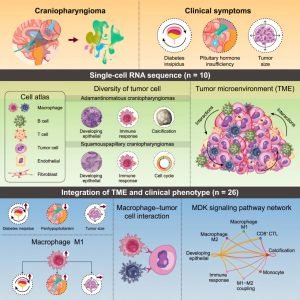
A series of community made videos have proven to be an effective way to encourage Black people to donate blood, with research showing this arts-based approach could help to boost much needed blood supplies.
Researchers from the University of Nottingham’s School of Psychology worked with Action on Blood to create four short videos aimed at encouraging Black people to give blood. These were then tested and evaluated and 90% of the target audience who were shown the videos stated that they would be convinced to donate blood.
The results have been published in Transfusion and highlight the power of arts-based approaches (both locally co-produced community films and franchise collaborations, in this case with Disney/Marvel) in encouraging donors within their target audiences and, importantly, on the broader population.
There is an urgent clinical need to encourage more Black people to donate blood to enhance the efficacy of treatment for conditions like sickle cell disease. NHS Blood and Transplant (NHSBT) needs around 12,000 new Black donors a year, a 50% increase from the previous year.4 While traditional public health campaigns based on information transfer can be useful, novel arts-based approaches offer a promising alternative, leveraging emotional engagement by involving individuals in both the creation and consumption of art.
Action on Blood is a UK and Nigeria-based social enterprise that recruits, nurtures, mobilizes, and showcases Black people participating in activities like blood donation and health research. They led the co-creation of the videos that were scripted, acted and produced by Black professional artists in London.
The four community films had different themes; Comedy, Reciprocity, Donor-Recipient and Sliding Doors. Each had its own storyline developed over two one-day workshops in London.
“This research shows the power of involving the intended communities in the co-design of health care promotion from the start and the real positive impact this can have, by enhancing trust and engaging people emotionally. It highlights why co-design with ethnic minorities has a vital role within health care and health care delivery to address wider health needs and health inequalities and health.
“Ensuring people are involved, engaged and listened, to develop arts-based approaches, could really help with boosting much needed blood supplies by engaging people’s emotions,” says Professor Eamonn Ferguson, School of Psychology.
“Arts-based approaches really work for tackling human behavioral change as they transcend logic and ‘reasoned’ arguments, providing a direct link to emotions and feelings,” says Abiola Okubanjo, chief executive of Action on Blood.
To address the universal appeal of the videos co-produced with the Black community, Abiola said, “Narratives are particularly powerful in bridging cultural gaps as they tap into the humanity that is shared by everyone.”
Altaf Kazi, NHS Blood and Transplant Assistant Director for Partnerships and Engagement said, “We contributed to this important research through our marketing teams and also through the NHIR Blood and Transplant Unit in Donor Health and Behaviour.
“The research shows the effectiveness of both major franchise collaborations and co-designed community content and we see value in both approaches.”
More information:
Richard Mills et al, The power of arts‐based film interventions to encourage Black blood donors, Transfusion (2024). DOI: 10.1111/trf.17963
Citation:
Research shows community-made videos encourage Black blood donors (2024, October 14)
retrieved 14 October 2024
from https://medicalxpress.com/news/2024-10-community-videos-black-blood-donors.html
This document is subject to copyright. Apart from any fair dealing for the purpose of private study or research, no
part may be reproduced without the written permission. The content is provided for information purposes only.








